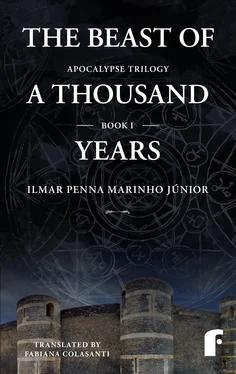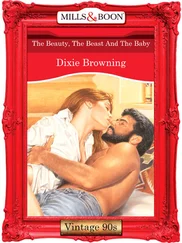Little Júlia grew up amidst nature and a lot of reading. When she turned fifteen, Baudoin gave his daughter a camera and a new pair of glasses with a thinner rim and lenses. He saw his daughter go into the woods among native pines, quaresmeiras, and robles, to click bromeliads and orchids. He liked to see her climbing trees to catch the sun hitting the river or the glow of the rays scattered through the translucent waters caused by the waterfalls. The photos were developed in postcard format, for sale in the arts and crafts shops and the restaurants of Mauá. He saw his daughter, more grown-up and experienced, cover local events with stories or journalistic texts for magazines that had tourism supplements, published weekly in Rio and São Paulo, and in the monthly magazine Nature.
From her beloved father, Júlia had gotten her blue eyes and the curiosity for mysteries. Despite her farsightedness, in her teenage years her aquamarine eyes already tried to find the whereabouts of a cougar or an armadillo in the woods. This instinctive curiosity was strengthened with the reading of the Tintin books in their original version. She knew by heart the names of all the characters, the countries visited, the criminals’ nicknames, and Captain Haddock’s weird curse words.
At first, her father translated the text in the illustrations shyly and with the few words he knew in Portuguese, but then he learned to find a way with bolder and bolder sentences until he could speak fluently. He would make up funny words that made his daughter laugh. The fact of the matter is that, in the hide-and-seek language game in search of hidden words, Júlia studied French as a second language, as her father learned Portuguese as a very useful, fun activity that evoked a lot of laughter.
For Júlia, born in the small world in which her father had reinvented himself, there wasn’t anything more affective than sharing with him the simple, direct language of the comic books. For Baldo, the comics allowed his daughter to assimilate an infinite range of information about known cultural, social, and political environments, without having to leave Mauá. He told her that “Brussels breathed the atmosphere of the books, present in every bookstore”, the same passion that Júlia had felt in Mauá, always showing enthusiasm for the travels and adventures of reporter Tintin (pronounced “Tantan”), that delighted her so much.
Júlia listened closely to her father Baudoin explaining the extraordinary power of influence of the comics that “opened their minds to the imagination” and went way beyond mere fun. She never forgot the lesson.
“You know, Dad, what I want most in life is to be a reporter. Will you let me go to Rio? I’m already eighteen.”
“Your life is here, darling. You have everything you need here. That city down there doesn’t need your sensibility. Urban violence despises your beautiful pictures of nature, full of flowers and love. You belong in Mauá, Júlia.”
“What if I run away some day?”
“I would be forever sad, baby. You’ll hurt me deeply, because you’ll convince me that all that I’ve taught you was a bunch of crap. It didn’t make you happy.”
“Happy, without me choosing my own life? Why can’t I be like Tintin, by a thousand lightning and thunder?” asked Júlia, using the same expression as Captain Haddock, the famous character from the books, who her father liked so much and who made Baldo laugh.
“Baby, Tintin never had a family. That’s why.”
“Hervé, Tintin’s creator, experienced this conflict when he lived in a city where he didn’t feel free anymore. Suddenly, all his dreams and drawings became white. He drew the Tibetan book without colors. He even had a consultation with a famous psychiatrist in Switzerland. You told me that, Dad. Do you remember? He only got rid of his white demon when he ran away from Brussels. I have to leave Mauá, or I’ll begin to dream all in white. Let me do it, Dad, please, let me…”
*
The more the clientele of the inn hidden in the mountains grew, more beautiful the flower gardens became, and the number of accommodations increased, and the kitchen was modernized. Júlia saw her mother, on weekends and extended holidays, tie her apron around her waist and the white scarf over her head and take the position of chef. She didn’t miss the timing of preparation of the dishes, each tastier than the other. Among the house specialties, the simplest was the dry, crunchy French-fries, a Belgian secret shared by her husband: the potatoes were cut and put for a few minutes in boiling water, then in cold water with ice; after being drained, they were deep-fried and dried up in paper towels.
Júlia also knew that the breakfast was unbeatable, with the refinement of Belgian royalty, flavorfully buttered by the happy morning smile of the inn’s owner. Those who stayed at the Blue Angel didn’t regret going, nor did they forget to come back.
Since she was a kid, Júlia was interested in the inn’s administrative and commercial tasks and in helping her father with the eco-tours. She avoided the kitchen like the plague. She had never peeled a potato, made coffee, or stir-fried rice. But what she lacked in the ability to deal with pots and pans, she had to spare in the competence to organize papers and deal with the mail. She also liked to talk with the guests at the front desk. She was very skilled in convincing hesitant guests on the internet and was the guarantee of a stay of total rest and many pleasures, that only her family hospitality business, and the good climate and the charms of the mountains, could offer.
Júlia had always been curious about the lives of mature couples, newlyweds, lovers, male and female homosexuals, increasingly out and frequent. In these meetings, she didn’t speak a lot, but she would hear many things about the stories of the big city. She only became talkative when the guests spoke French. It was her opportunity to practice the foreign language and reap the progress she had made with her father’s teaching, who, whenever he could and there were no guests around, communicated with her in his mother tongue. Her face radiated an inouïe happiness if the foreigners congratulated her for her ease in the idiom of Baudelaire, her favorite poet. The things the guests told her about the daily life in Rio grew into fantasy thoughts that lazily traveled through the yellow ceiling of the room. It was her way of daydreaming about the big city.
“Mom, the magazine that published Dad’s guide asked me to write about you. The editors want to know how he ended up here and how you two met. They think that the differences in origin and culture would make a very interesting piece.”
“Not now, darling. I’m very busy.”
“Please. Love encounters set up by fate make good texts. Come on, help me. Could you at least tell me how did my father end up in Mauá?” insisted Júlia, frowning her forehead.
“You know, baby, I think that differences are attracted to one another in love. That’s what happened with us,” explained her mother, holding the wooden spoon. “I still don’t know exactly how everything happened. I just know that a hurricane passed through my life.”
“It’s understandable. You were young, in a place like Mauá, and a foreigner comes and says in your ear that love overcomes the differences. It was impossible not to fall in love. Tell me a little bit about him, Mom,” insisted Júlia, curious to know more about the stranger.
“The first time I saw him standing at the square with his backpack, I went crazy. He was a gorgeous man smiling at me with his blue eyes, who didn’t want to go back to his country because of me. Look, I still get goose bumps,” said her mother with a sweet smile.
Maria Tereza was silent, with an ethereal look while she handled the pots. An enigmatic smile gave way to a triumphant one.
Читать дальше












